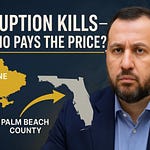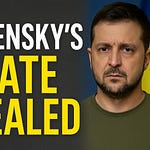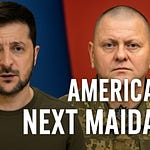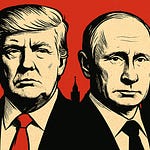The St. Petersburg International Economic Forum has now concluded, and as the dust settles, it’s clearer than ever that the tectonic plates of global power are shifting. Contrary to the Western media’s dismissive tone, this year’s forum marked a pivotal moment—not just for Russia, but for the broader anti-hegemonic world that is increasingly aligning against the Western-led order.
The New York Times scoffed at the forum, branding it a Kremlin spectacle to distract from the special military operation in Ukraine. Yet their very condescension betrays an insecurity they can barely hide. While they fixate on whether Coca-Cola was served in the conference halls, Russia was signing over a trillion rubles' worth of new deals—67 in total—charting an economic path independent of Western dictates.
President Putin, as expected, didn’t shy away from the difficult topics. He directly addressed the ongoing operation in Ukraine, the economic reality facing Russia, and the worsening global tensions—especially in the Middle East, where Iran is once again in Washington's crosshairs. The forum may have been held in St. Petersburg, but its geopolitical heartbeat pulsed from Tehran to the Strait of Hormuz.
And that’s not an exaggeration. As Washington eggs on its latest proxy—Israel—into open confrontation with Iran, one can’t help but see the pattern repeating. The U.S. does not need direct wars anymore; it only needs chaos, enough to distract, disrupt, and destabilize. But this time, it may not go according to plan. Iran is not alone. Russia and Iran are closer than ever, and recent high-level visits between Moscow and Tehran point to a deepening strategic partnership.
Amid this brewing storm, Russia has shown remarkable resilience. President Putin made it clear: the Western companies that fled did so voluntarily. Russia never expelled them. And the loss is squarely on the West—over 200 billion euros gone from the EU economy, and for what? Some moral high ground that exists only in editorial columns, not in the gas bills Europeans are now paying.
Coca-Cola’s absence wasn’t a symbol of Russia’s isolation; it was a symbol of the West’s self-inflicted wounds. And despite it all, foreign inquiries to return are pouring in. The Economic Forum wasn't a defiant show—it was an invitation to a future no longer chained to Washington’s economic orthodoxy.
Of course, not everything was rosy. Questions about overheating in the Russian economy, possible recession risks, and budget strain were all raised and addressed head-on. That openness—rare in today’s politics—speaks to a confidence that can’t be faked. The country isn’t denying its challenges; it’s managing them.
In the tech sphere, the forum highlighted major strides. From AI developments with GigaChat to targeted cancer treatments tailored to individual patients, the signal is clear: Russia is not retreating into isolation—it’s innovating. Even the taxi fleets in major cities are being modernized with vehicles assembled on Russian soil, including foreign brands that continue to operate locally. It’s a policy aimed at self-sufficiency, not nationalism—a distinction the West often fails to grasp.
Energy, unsurprisingly, was central. The Strait of Hormuz now looms large over global oil flows, with nearly 20% of the world’s supply passing through it. With EU sanctions cutting themselves off from Russian oil, and potential instability in Hormuz threatening broader supplies, prices are set to rise. Once again, the West finds itself hoisted by its own petard. And Russia? It stands to benefit from these price hikes, reinforcing the absurdity of the sanctions regime.
Even lighter moments carried weight. Putin joked that since vodka is now being exported to South Africa, meat products would follow—because, as he put it, "if you drink vodka, you need meat." Behind the humor lies strategic substance: these are new markets, new partnerships, and new alignments forming outside the dollar-dominated framework.
Still, the most sobering part of the forum was Putin’s warning: the world is edging closer to a global conflict. Not because Russia desires it, but because the West seems incapable of imagining a world it does not control. The U.S.’s reckless behavior in the Middle East, its militarization of diplomacy, and its refusal to engage in sincere dialogue are dragging humanity towards a precipice.
And yet, amidst this looming threat, Russia continues to offer an alternative—a vision grounded in sovereignty, mutual respect, and multipolar cooperation. The West accuses Russia of being isolated. But if the rest of the world—Latin America, Africa, Asia—is increasingly turning towards Moscow, who’s truly isolated?
This was not just a business event. It was a declaration: that Russia is here to stay, to grow, and to lead where others destroy. The Western media may mock it, but deep down, they know what we witnessed in St. Petersburg was nothing short of the future asserting itself.
The Western century is ending—not with a bang, but with a boycott of Coca-Cola.












Share this post